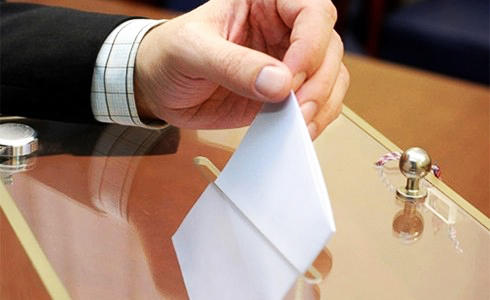Baku, Azerbaijan, Nov. 25
By Elena Kosolapova – Trend:
In a little more than a week Uzbekistan will hold an early presidential election, which will be the first election in the history of the country without the participation of its late leader Islam Karimov, who headed Uzbekistan since 1989.
Islam Karimov enjoyed a big support of the Uzbek population and he constantly gained an overwhelming majority of votes in all the elections. In the last election in 2015, Karimov gathered over 90 percent of votes, which would allow him to rule the country until 2021. However, in early autumn of 2016, Karimov’s era ended – in late August he suffered a stroke and after a few days, without regaining consciousness, he died at 79.
Further fate of Uzbekistan is important not only for the people of this Central Asian country. Uzbekistan is one of the key countries in the region. The country is a home to over 30 million people – almost the same number as in the other four countries of the region taken together.
Uzbek economy is one of the fastest growing economies in the world and the country ranks the second in the region after Kazakhstan in terms of GDP volume. Uzbekistan ranks 11th in extraction of natural gas, 6th in cotton production and 9th in gold production in the world.
Uzbekistan is also a large producer of high-quality fruits and vegetables. The country not only meets domestic needs, but also annually sends hundreds of thousands of tons of fruits and vegetables for export.
Uzbekistan has the largest car plant in the region, capable of producing up to 250,000 popular Korean car brands a year, which are in high demand in the local and neighboring markets.
Finally, Uzbekistan has the largest and efficient army in Central Asia, which is important due to the country’s proximity to Afghanistan and growing terrorist threats in the world and the region.
This all means that all the neighbors of Uzbekistan would face problems and far-reaching consequences in case of instability along the Uzbek borders.
Therefore, the presidential election in Uzbekistan on December 4 will determine the destiny of the whole Central Asia.
There are four presidential candidates – acting President Shavkat Mirziyoyev, Chairman of the People’s Democratic Party Hotamzhon Ketmonov, Nariman Umarov from “Adolat” Party and Sarvar Otamuratov from “Milly Tiklanish” Party.
As of today, there is an almost 100-percent probability that the acting President Shavkat Mirziyoyev will win the election to head the country for the next five years. The acting president’s opponents, despite the leading positions in their parties, are not known by mostly apolitical Uzbek voters.
Mirziyoyev, on the contrary, is a prominent figure in the country. He was a member of Islam Karimov’s team for many years and has served as the country’s prime minister since 2003. Moreover, namely Mirziyoyev was appointed the country’s acting president by the Uzbek parliament and was declared the successor of the current policy.
Being the country’s head has made Mirziyoyev even more popular with the Uzbek people. But most importantly, the majority of people witnessing the situation in the neighboring Afghanistan want to preserve the policy of the country’s first President Islam Karimov, who has secured Uzbekistan’s stability for many years.
And, it is Shavkat Mirziyoyev who promises to continue this policy. These promises were the core of his election campaign and they will probably be the key factor in garnering the votes.
Mirziyoyev considers maintaining stability and peace in Uzbekistan, as well as continuing the reforms implemented under President Karimov, as the foundation for the country’s future development. He does not promise any considerable innovations in the country’s domestic and foreign policy. Thus, neither citizens, nor Uzbekistan’s partners should expect cardinal changes.
However, Mirziyoyev might pursue a more active policy due to his younger age and robust health, as compared to his predecessor who has often been ill in recent years, which resulted in changes in his work schedule.






